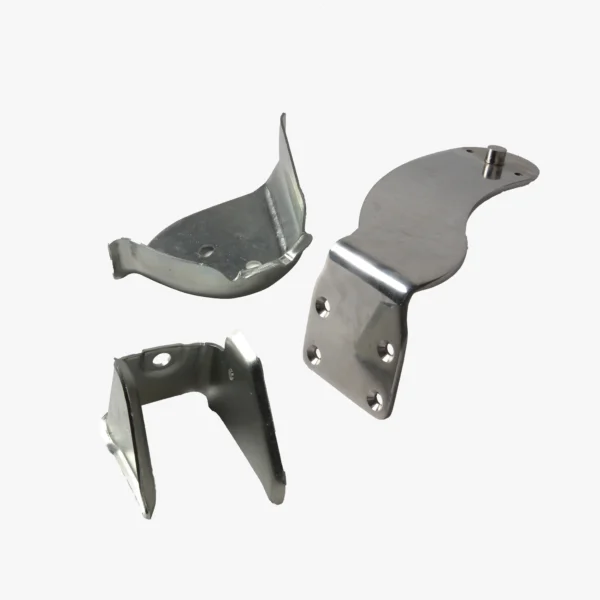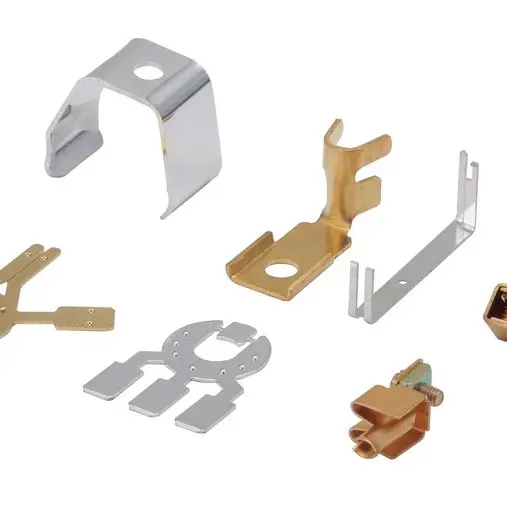-
Nr. 66 Gaojia, Dorf Xingfu, Stadt Sanqi, Yuyao, Ningbo, China

„Stamp“ entpacken: Ein umfassender Leitfaden zu seiner englischen Definition und Bedeutung
Dieser Artikel bietet eine gründliche Untersuchung des Wortes „Stempel“ und vertieft sich in die verschiedenen Definitionen Und Bedeutungen im Englisch Sprache. Von seiner gemeinsamen Verwendung als Verb und ein Substantiv Neben seinen spezielleren Anwendungen hat „Stamp“ eine reiche Geschichte und ein vielfältiges Anwendungsspektrum. Egal, ob Sie ein Sprachliebhaber, ein Student oder einfach nur neugierig auf die Feinheiten von EnglischDieser ausführliche Leitfaden bietet wertvolle Einblicke und praktisches Wissen und ist daher eine unverzichtbare Lektüre.
Inhaltsverzeichnis
Wie man ein Wörterbuch effektiv nutzt, um „Stempel“ zu verstehen
A Wörterbuch ist ein unschätzbares Werkzeug zum Verständnis der Nuancen eines Wortes wie „Stempel.” Allerdings reicht es nicht immer aus, das Wort einfach nachzuschlagen. Um seine Bedeutung wirklich zu verstehen, muss man wissen, wie man sich in einer Wörterbuch Eintrag effektiv. Wenn Sie Durchsuchen A Wörterbuch für "Stempel”, achten Sie besonders auf Folgendes:
- Wortart: Ist "Stempel“ wird verwendet als Verb oder ein Substantiv? Wörterbücher trennen Einträge normalerweise nach Wortart, daher ist es wichtig, diese zu identifizieren.
- Mehrere Definitionen: “Stempel” hat mehrere Definitionen. Lesen Sie sie alle sorgfältig durch, da jede einen anderen Aspekt des Wortes offenbart. Bedeutung. Beachten Sie, dass jeder Definition des Wortes „Stempel“ ist etwas anders.
- Hinweise zur Verwendung: Viele Wörterbücher enthalten Anmerkungen zu Verwendung, die angibt, ob ein bestimmter Definition ist formell, informell oder spezifisch für eine bestimmte Region oder ein bestimmtes Gebiet. Cambridge Advanced Learner's Dictionary ist hierfür eine gute Quelle.
- Beispielsätze: Achten Sie genau auf die Beispielsätze bereitgestellt. Sie veranschaulichen, wie „Stempel” wird im Kontext verwendet, wodurch seine Bedeutung klarer.
- Verwandte Begriffe: Suchen Sie nach verwandten Begriffen, wie etwa Redewendungen (z. B. „Stempel der Zustimmung“) oder Sätze, die „Stempel.“ Dies kann Ihr Verständnis weiter verbessern.
- Synonyme und Antonyme: Einige Wörterbücher listen Synonyme (Wörter mit ähnlicher Bedeutung) und Antonyme (Wörter mit entgegengesetzter Bedeutung). Diese können Ihnen helfen, die Nuancen von „Stempel.”
Wenn Sie diese Schritte befolgen, erhalten Sie ein umfassendes Verständnis von „Stempel„ und seine Vielfältigkeit Verwendung.
Was bedeutet „Stempel“ in Beispielsätzen?
Um wirklich zu verstehen, Bedeutung von "Stempel”, ist es wichtig, es im Kontext zu sehen. Betrachten wir einige Beispielsätze die ihre unterschiedliche Verwendungen:
- Verb (um eine Oberfläche zu markieren): „Der Beamte wird Stempel Ihren Reisepass an der Grenze.“ (Hier: „Stempel” bedeutet, einen markieren mit einem Instrument)
- Verb (eine Briefmarke anbringen): „Denken Sie daran, Stempel Die Brief bevor Sie es abschicken.“ (In diesem Fall „Stempel” bedeutet das Anhängen eines kleines Stück Papier was darauf hinweist, dass Porto ist bezahlt)
- Verb (schwer treten): „Das Kind gestempelt ihr Fuß in Frustration.“ (Hier: „Stempel” beschreibt eine kraftvolle Bewegung der Fuß)
- Substantiv (eine Briefmarke): „Ich muss ein Stempel dafür Paket.“ (In diesem Satz, “Stempel” bezieht sich auf den Klebstoff Papier gewöhnt an zahlen für Porto)
- Substantiv (ein Instrument zur Prägung): „Das Firmenlogo wurde mit einem maßgeschneiderten Stempel." (Hier, "Stempel” bezieht sich auf die Gerät verwendet, um eine Eindruck)
- Substantiv (ein Zeichen oder Eindruck): „Das Dokument trug den offiziellen Stempel von Behörde.“ (In diesem Fall „Stempel” bezieht sich auf die markieren oder Siegel selbst)
Diese Beispiele demonstrieren die Vielseitigkeit von „Stempel“ und wie seine Bedeutung kann sich je nach Kontext ändern. Jeder Satz hilft, die spezifischen Verwendung des Wortes.

Das Verb „Stempeln“ erkunden: Definitionen und Verwendung
Als Verb, “Stempel” trägt mehrere unterschiedliche Definitionen, jede mit ihren eigenen Nuancen und Anwendungen. Das Verständnis dieser verschiedenen Bedeutungen ist für die richtige Verwendung des Wortes von entscheidender Bedeutung.
- Mit dem Fuß kräftig auf den Boden treten: Dies ist eine häufige Bedeutung von "Stempel”, wird oft verwendet, um Emotionen wie Wut oder Frustration auszudrücken.
- Beispiel: "Er gestempelt sein Fuß und stürmte aus dem Zimmer.“
- Der Definition von Stempeln Verb beinhaltet diese Bedeutung.
- So prägen oder markieren Sie eine Oberfläche: Das Definition beinhaltet die Verwendung eines Objekt oder Instrument zur Erstellung eines markieren, Design oder Inschrift.
- Beispiel: „Der Bibliothekar wird Stempel das Rückgabedatum steht auf der Innenseite des Buchumschlags.“
- So bringen Sie eine Briefmarke an: Das Verwendung bezeichnet das Aufkleben eines Stempel auf eine Brief oder Paket Zu angeben Das Porto ist bezahlt.
- Beispiel: „Vergiss nicht, Stempel Die Umschlag bevor Sie es in den Briefkasten werfen.“
- So geben Sie ein offizielles oder besonderes Zeichen: Dies kann eine wörtliche markieren oder im übertragenen Sinn, was auf eine besondere Eigenschaft oder Qualität hinweist.
- Beispiel: „Die neue Politik wird Stempel das Engagement des Unternehmens zur Umweltverantwortung.“
Diese Definitionen demonstrieren die Vielseitigkeit von „Stempel“ als VerbDer Kontext der Satz macht in der Regel die beabsichtigte Bedeutung klar. Das ist ein perfektes Beispiel des Wortes „Stempel“.
Was sind die verschiedenen Bedeutungen von „Stamp“ als Substantiv?
“Stempel” ist nicht nur ein vielseitiges Verb sondern auch eine vielseitige Substantiv mit einer Reihe von Bedeutungen. Lassen Sie uns einen Blick auf die verschiedenen Einsatzmöglichkeiten als Substantiv:
- Ein kleines Stück Klebepapier: Dies ist vielleicht die bekannteste Bedeutung von "Stempel“ als Substantiv. Briefmarken, die von Regierungen herausgegeben werden, werden auf Briefen angebracht an angeben dass die Gebühr für die Lieferung wurde bezahlt.
- Beispiel: „Sie besitzt eine beeindruckende Sammlung seltener Briefmarken.”
- Ein Instrument oder Gerät zum Prägen: Diese Art von „Stempel” wird verwendet, um eine markieren, Design oder Inschrift auf einer Oberfläche. Es kann aus Gummi, Metall oder anderen Materialien bestehen. Ein gutes Beispiel ist ein Gummi Stempel gewöhnt an markieren Dokumente mit Datum oder Firmenlogo.
- Beispiel: „Der Notar verwendete eine Stempel zur Authentifizierung der dokumentieren.”
- Das Zeichen oder der Abdruck eines Stempels: Dies bezieht sich auf die tatsächliche markieren links von einem Stempel, wie zum Beispiel ein Poststempel auf einem Umschlag oder ein auf ein Produkt aufgedrucktes Design.
- Beispiel: "Der Brief hatte eine klare Stempel mit Angabe des Versanddatums.“
- Ein besonderes Merkmal oder eine besondere Qualität: Dies ist eine eher bildliche Bedeutung von "Stempel”, was auf eine besondere Eigenschaft oder ein besonderes Merkmal hinweist, das etwas von anderen abhebt.
- Beispiel: „Der einzigartige Stil des Designers hinterließ Stempel auf die gesamte Kollektion.“
Diese vielfältigen Bedeutungen unterstreichen den Reichtum und die Komplexität von „Stempel“ als Substantiv.
Wie wird „Stamp“ in Ausdrücken und Kollokationen verwendet?
“Stempel” erscheint häufig in verschiedenen Phrasen Und Kollokationenund verleiht seinem Verwendung. Kollokationen sind Wörter, die oft zusammen verwendet werden und natürlich klingende Kombinationen bilden. Lassen Sie uns einige häufige Kollokationen Und Phrasen mit „Stempel“:
Häufige Kollokationen:
- Stempel: A Gerät mit einer Gummioberfläche zum Aufdruck eines markieren oder Design.
- Beispiel: „Sie benutzte ein Stempel Zu markieren die Rechnungen als bezahlt.“
- Briefmarke: A kleines Stück Papier angehängt an angeben Zahlung von Porto.
- Beispiel: „Er platzierte sorgfältig die Briefmarke auf der Umschlag.”
- Ausmerzen: Etwas vollständig beseitigen oder unterdrücken.
- Beispiel: „Die Regierung ist entschlossen, Stempel Korruption bekämpfen.“
- Gütesiegel: A markieren oder eine Erklärung, die eine offizielle Billigung oder Genehmigung anzeigt.
- Beispiel: „Das neue Produkt erhielt die Stempel der Genehmigung durch die Regulierungsbehörde.“
- Stempelsteuer: A Steuer auf bestimmte Rechtsdokumente, wie etwa Eigentumsübertragungen, erhoben.
- Beispiel: „Der Käufer musste Stempelsteuer zahlen beim Kauf des Hauses.“
Häufige Ausdrücke:
- “Stempel „Ihre Füße“: Die Füße heftig und wiederholt auf den Boden schlagen, oft aus Wut oder Frustration.
- Beispiel: „Das Kind gestempelt ihre Füße und weigerte sich zu gehen.“
- “Stempel etwas mit etwas“: Einem markieren oder mit einem Werkzeug oder einer Maschine entwerfen.
- Beispiel: „Der Hersteller gestempelt jedes Teil mit einer einzigartigen Seriennummer.“
Diese Kollokationen Und Phrasen demonstrieren die Vielseitigkeit von „Stempel” und wie es mit anderen Wörtern kombiniert wird, um spezifische Bedeutungen.
So entziffern Sie „Stempel“ in verschiedenen Themen und Kontexten
Das Wort „Stempel” erscheint in einer Vielzahl von Kontexten, jeder mit seinen eigenen spezifischen Konnotationen. Das Verständnis dieser Nuancen ist entscheidend für die richtige Interpretation des Wortes. Lassen Sie uns erkunden Wie "Stempel” wird in verschiedenen Themen:
- Postdienst: In diesem Zusammenhang: „Stempel” bezieht sich fast immer auf Briefmarken, diese kleine Stücke von Papier befestigt an Briefe Und Pauschalen Zu angeben dass der Absender bezahlt für die Lieferung.
- Beispiel: „Die Post hat eine neue Reihe von Gedenkmünzen herausgegeben. Briefmarken.”
- Fertigung und Industrie: In der Fertigung „Stempel” bezieht sich oft auf einen Prozess namens Metallstanzen, bei dem Metallbleche mithilfe von Pressen und Matrizen in bestimmte Formen gebracht werden. Dies ist ein entscheidender Prozess in Branchen wie der Automobil- und Geräteherstellung. Für Beispiel, Geräteteile Metallhalterungen werden häufig mit diesem Verfahren hergestellt.
- Beispiel: „Die Fabrik nutzt moderne Stempeln Techniken zur Herstellung hochwertiger Metallkomponenten.“
- Rechtliche und offizielle Dokumente: Hier, "Stempel” kann sich auf einen Beamten beziehen Siegel oder markieren zur Authentifizierung oder Validierung von Dokumenten verwendet. Dies kann eine physische Stempel oder ein elektronisches Äquivalent.
- Beispiel: „Der Vertrag verlangte, dass der Beamte Stempel eines Notars, um rechtsverbindlich zu sein.“
- Finanzen und Steuern: “Stempelsteuer” ist ein Begriff aus dem Finanz- und Steuerwesen, der sich auf eine Steuer auf bestimmte gesetzliche Unterlagen, wie etwa Eigentumsübertragungen.
- Beispiel: „Der Käufer musste zahlen eine erhebliche Menge an Stempelsteuer beim Kauf der Immobilie.“
Diese Beispiele zeigen, wie die Bedeutung von "Stempel” kann je nach Kontext variieren. Wenn man sich dieser unterschiedlichen Verwendungen ist für eine genaue Interpretation unerlässlich.

Was sagt das Cambridge English Dictionary zum Thema „Stamp“?
Der Cambridge Englisch Wörterbuch ist eine hoch angesehene Ressource für Definitionen Und Verwendung Beispiele für Englisch Worte. Demnach Wörterbuch, “Stempel” hat mehrere Bedeutungen als sowohl ein Verb und ein Substantiv.
Verb:
- Um ein markieren auf einer Objekt, entweder durch Bedrucken mit einem speziellen Werkzeug oder durch Aufkleben.
- Beispiel: „Jeder Pass ist gestempelt wenn jemand das Land betritt.“
- Um Ihre Fuß schwer und geräuschvoll auf den Boden fallen.
- Beispiel: "Sie gestempelt ihr Fuß wütend."
- Mit schweren oder lauten Schritten gehen, oft um Ärger auszudrücken.
- Beispiel: "Er gestempelt wütend aus dem Zimmer.“
Substantiv:
- A kleines Stück Papier mit einem Bild oder Muster darauf, aufgeklebt auf Brief oder Paket Zu zahlen die Kosten für den Versand per Post.
- Beispiel: „Ich muss etwas kaufen Briefmarken für diese Postkarten.“
- Ein Werkzeug mit erhabenem Muster oder einer mit Tinte bedeckten Oberfläche zum Bedrucken markieren auf eine Oberfläche; die markieren mit diesem Werkzeug erstellt.
- Beispiel: „Das Firmenlogo wurde mit einem Gummiaufdruck aufgebracht. Stempel.”
- Ein charakteristisches Merkmal oder eine charakteristische Eigenschaft.
- Beispiel: „Das neue Gebäude hat die Stempel eines Meisterarchitekten.“
Der Cambridge Englisch Wörterbuch bietet auch Informationen zur Aussprache, verwandten Wörtern und Beispielsätze, was es zu einer umfassenden Ressource zum Verständnis des Wortes „Stempel.”
Die Grammatik von „Stamp“ beherrschen: Verbformen und Verwendung
Um „Stempel” richtig, ist es wichtig, seine Grammatik, insbesondere seine Verb Formen.“Stempel” ist ein regelmäßiger Verb, was bedeutet, dass es Vergangenheitsform und Vergangenheitsform ist Partizip werden gebildet, indem man an die Grundform „-ed“ anhängt. Betrachten wir die verschiedenen Verb Formen von „Stempel“:
- Grundform (Stempel): Dies ist die Infinitivform (to Stempel) und wird auch für das einfache Präsens verwendet (mit Ausnahme der dritten Person Singular).
- Beispiel: "Ich muss Stempel diese Dokumente.“
- Einfache Vergangenheit (gestempelt): Dieses Formular dient der Beschreibung von in der Vergangenheit abgeschlossenen Aktionen.
- Beispiel: "Sie gestempelt Die Brief und habe es gestern abgeschickt.“
- Partizip Perfekt (gestempelt): Diese Form wird im Perfekt verwendet (z. B. have gestempelt, hatte gestempelt) und in Passivkonstruktionen.
- Beispiel: „Die Dokumente wurden gestempelt und sind bereit zur Verarbeitung.“
- Präsens-Partizip (Stempeln): Diese Form, die auf „-ing“ endet, wird in kontinuierlichen Zeitformen verwendet (z. B. ist Stempeln, War Stempeln) und als Gerundium (a Verb Form, die fungiert als Substantiv).
- Beispiel: „Er ist Stempeln die Pässe im Nebenzimmer.“
- Beispiel: “Stempeln dein Fuß wird die Situation nicht ändern.“ (Gerundium)
Das Verstehen dieser Verb Formen und deren korrekte Verwendung ist entscheidend für die Konstruktion grammatikalisch korrekter Sätze mit "Stempel.”
Ein tiefer Einblick in das Metallstanzen
Metallstanzen ist ein Herstellungsverfahren, bei dem flache Metallbleche mithilfe von Matrizen in bestimmte Formen gebracht werden und Stempeln Pressen. Dieser Prozess ist grundlegend für die Herstellung einer breiten Palette von Produkten, von Alltagsgegenständen wie Zylindrische Abstandshalter und Büroklammern bis hin zu komplizierten Komponenten für Autos und Flugzeuge. Mit meiner Expertise in der Metallstanzen Industrie kann ich einige wertvolle Einblicke in diese wichtige Fertigungstechnik geben.
Der Metallstanzprozess:
Metallstanzen Dabei wird ein flaches Blech, oft auch als Rohling bezeichnet, in ein Stanzpresse. Die Presse verwendet ein Werkzeug und eine Matrizenoberfläche, um das Metall in die gewünschte Form zu bringen. Dieser Prozess kann mehrere Techniken umfassen, darunter:
- Ausblendung: Schneiden Sie das Blech auf die gewünschte Kontur oder Form.
- Piercing: Bohren von Löchern in das Blech, häufig für Befestigungselemente oder andere Komponenten.
- Biegen: Formen von Winkeln, Kurven und Flanschen im Metall.
- Prägung: Erstellen erhabener oder vertiefter Merkmale auf der Metalloberfläche, wie beispielsweise Schriftzüge oder Muster.
- Prägung: Erzeugen eines erhabenen Musters oder Designs auf der Metalloberfläche, häufig zu Dekorations- oder Identifikationszwecken.
Vorteile des Metallstanzens:
Metallstanzen bietet gegenüber anderen Fertigungsverfahren zahlreiche Vorteile, wie zum Beispiel:
- Präzision und Genauigkeit: Stempeln kann Teile mit engen Toleranzen und gleichbleibender Qualität herstellen und so sicherstellen, dass jedes Teil die erforderlichen Spezifikationen erfüllt.
- Kosteneffizienz: Im Vergleich zu anderen Methoden Metallstanzen ist insbesondere bei der Produktion großer Stückzahlen häufig wirtschaftlicher, da die anfänglichen Werkzeugkosten auf eine große Anzahl von Teilen verteilt werden.
- Hohe Produktionsraten: Stempeln Pressen können Teile schnell produzieren und sind daher ideal für die Massenproduktion und die Einhaltung enger Termine.
- Materialvielfalt: Es kann eine breite Palette von Metallen gestanzt werden, darunter Stahl, Aluminium, Kupfer, Messing und verschiedene Legierungen, was Flexibilität bei der Materialauswahl bietet.
Anwendungen des Metallstanzens:
Metallstanzen findet Anwendung in zahlreichen Branchen, darunter:
- Automobilindustrie: Karosserieteile, Halterungen, Fahrgestellkomponenten und andere Strukturteile.
- Luft- und Raumfahrt: Flugzeughäute, Motorkomponenten, Innenausstattung und andere Spezialteile.
- Geräte: Gehäuse, Paneele, Innenkomponenten und Strukturträger für Waschmaschinen, Kühlschränke, Öfen und andere Haushaltsgeräte.
- Elektronik: Gehäuse, Anschlüsse, Kühlkörper und andere Komponenten für Computer, Smartphones und verschiedene elektronische Geräte. Für Beispiel, Stanzen von elektrischen Sammelschienen.
Wie Sie sehen können, Metallstanzen ist ein unverzichtbarer Prozess in der modernen Fertigung und trägt zur Herstellung unzähliger Produkte bei, die wir täglich verwenden. Es ist eine großartige Beispiel.

Synonyme und verwandte Begriffe für „Stempel“ erkunden
Während "Stempel” hat seine eigene einzigartige Bedeutung, die Erforschung seiner Synonyme und verwandte Begriffe können zu einem tieferen Verständnis der Nuancen beitragen und Ihren Wortschatz erweitern.
Synonyme:
- Impressum: Um eine markieren oder ein Design auf einer Oberfläche.
- Beispiel: „Das Logo des Unternehmens war geprägt auf allen seinen Produkten.“
- Siegel: Ein Entwurf oder markieren dient zur Authentifizierung eines dokumentieren oder Objekt.
- Beispiel: „Der Beamte Siegel wurde der Bescheinigung beigefügt.“
- Stempel: A markieren gemacht auf einem Brief oder Paket zum Abbrechen der Stempel Und angeben das Datum und den Ort der Absendung.
- Beispiel: "Der Stempel zeigte, dass die Brief wurde aus New York geschickt.“
- Stampfen: Mitbringen Fuß schwer nieder.
- Beispiel: "Er stampfte sein Fuß im Zorn.“
Verwandte Begriffe:
- Gravieren: Ein Muster in eine harte Oberfläche schnitzen oder schneiden.
- Beispiel: „Der Juwelier graviert die Initialen des Paares auf der Innenseite des Rings.“
- Prägen: Zum Erstellen eines erhabenen Musters auf einer Oberfläche.
- Beispiel: „Der Name des Unternehmens war geprägt auf dem Ledereinband des Buches.“
- Marke: Zu markieren mit einem Brandeisen oder zur Identifikation mit einer bestimmten Eigenschaft.
- Beispiel: „Der Rancher gebrandmarkt das Vieh mit dem Symbol der Ranch.“
Erkunden Sie diese Synonyme und verwandte Begriffe können Ihnen dabei helfen, das präziseste Wort für einen bestimmten Kontext zu wählen und Ihr Gesamtergebnis zu verbessern Englisch Sprachkenntnisse.
Wichtige Erkenntnisse:
- “Stempel„“ verfügt über eine breite Palette von Bedeutungen als sowohl ein Verb und ein Substantiv, einschließlich Aktionen wie Markieren, Anbringen Portound schwere Schritte, sowie Gegenstände wie Briefmarken und Prägewerkzeuge.
- Wörterbücher sind unverzichtbare Hilfsmittel zum Verständnis von „Stempel“ und bietet Definitionen, Verwendung Anmerkungen, Beispielsätzeund verwandte Begriffe.
- Der Bedeutung von "Stempel„“ kann je nach Kontext variieren, beispielsweise im Postdienst, in der Fertigung, bei juristischen Dokumenten oder im Finanzwesen.
- “Stempel” kommt in zahlreichen Kollokationen Und Phrasen, wie "Stempel der Zustimmung“, „Stempel aus“ und „Stempel Pflicht“, die seine Vielseitigkeit erhöhen.
- Der Cambridge Englisch Wörterbuch bietet umfassende Definitionen von "Stempel” als sowohl ein Verb und ein Substantiv, zusammen mit Anwendungsbeispielen.
- Beherrschung der Grammatik von "Stempel” beinhaltet das Verständnis seiner verschiedenen Verb Formen: Grundform, einfaches Präteritum, Vergangenheit Partizipund Gegenwart Partizip.
- Metallstanzen ist ein wichtiger Herstellungsprozess, bei dem Pressen und Matrizen zum Formen von Metallblechen verwendet werden und der Vorteile wie Präzision, Kosteneffizienz und hohe Produktionsraten bietet.
- Entdecken Synonyme wie „Aufdruck“, „Siegel“ und „Poststempel“ sowie verwandte Begriffe wie „gravieren“, „prägen“ und „Marke“ können Ihr Verständnis von „Stempel“ und erweitern Sie Ihren Wortschatz.
- Produkte zur Blechbearbeitung sind die besten Beispiel davon, wie Stempel wird verwendet in der Metallstanzen Industrie.
- Teile für Montagehalterungen – OEM-Stanzung ist das klare Beispiel der Verwendung Stempel in der Fertigungsindustrie.
- Das Wort „Stempel“ hat eine reiche Geschichte.




